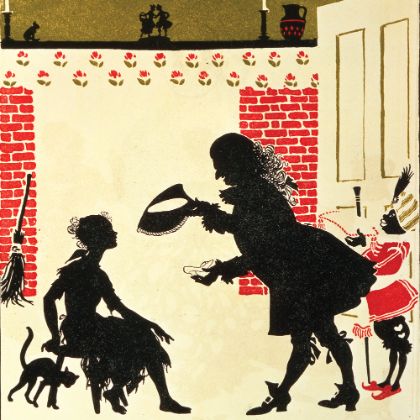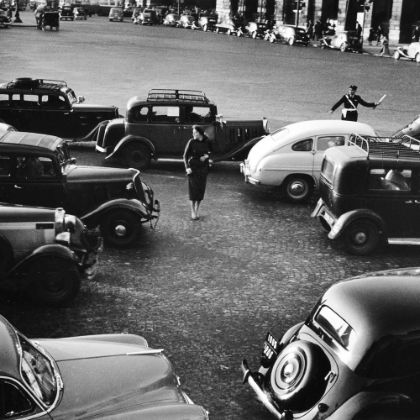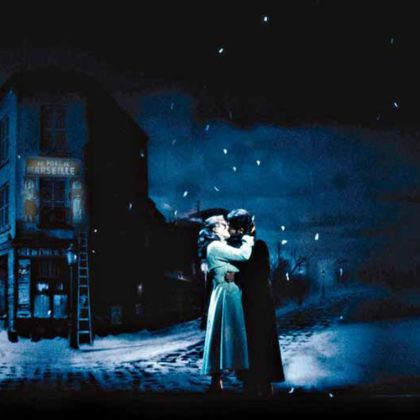Maestro Michael Tilson Thomas talks Mahler, Stravinsky and the future of contemporary music — in real space and in cyberspace.
By Ben Finane
Illustration by Riccardo Vecchio
michael Tilson Thomas is music director of the San Francisco Symphony, founder and artistic director of the New World Symphony and principal guest conductor of the London Symphony Orchestra. Thomas’s is an artistic family: his grandparents, Boris and Bessie Thomashefsky, were founding members of the Yiddish Theater in America; his father, Ted Thomas, was a producer in the Mercury Theater Company in New York and later worked in films and television in Los Angeles; his mother, Roberta Thomas, was the head of research for Columbia Pictures.
An avid proponent of new media, Thomas conducted the debut of the YouTube Symphony Orchestra at Carnegie Hall. Maestro Thomas spoke to Listen on the phone from Budapest, where he was shooting a video on Mahler, the latest entry of the Keeping Score DVD series.
You were already a Mahlerian before recording the cycle with the San Francisco Symphony. Can you share some of what has been revealed to you in the wake of recording the Mahler symphonies?
Well, as is always the case with performing great music, over more years you see more things as you keep going. I liken these symphonies to a national park. Anytime you revisit them, you see something else. You kind of know the pathways, you know what’s there, but you take it in from a different perspective, and people with whom you’re visiting the park also change the nature of your experience. Members of the orchestra and the audience go into this mysterious mix of why it becomes, over time, different.
So Mahler Eight will be released this fall [on the San Francisco Symphony label] and then that’s it!
Well yes, unless I start all over again. It’s like painting the Golden Gate Bridge, isn’t it? It’s never over. We’re also going on to do some more songs and, of course, this Keeping Score video, which treats the music in quite a different way.
Is the prime purpose of Keeping Score to shrink the distance between music and audience?
Yes, I think it’s to provide backstories on the origin of the music, the composers’ thoughts and experience and also the experiences of people who are involved in re-creating the music. And so these two kinds of backstories work with one another to hopefully make the listener feel much closer to the idea and the message of the piece.
What are your criteria for selecting which works will be investigated in that series?
Pretty much the same as anything else I do, which is that although I have the benefit — it seems a very long time ago — of a reasonably rigorous education, I find more and more I’m relying on pure instinct.
Four American composers feature heavily in your discography: Copland, Gershwin, Ives and Reich. Is this the great foursome of American twentieth century classical for you?
Well, they’re pretty great. You left out [Carl] Ruggles; I recorded his complete works. They’re out of print now, so I guess I have to go back and do it all over again.
Is that something you’d like to do?
Definitely.
Are there commonalities that these composers share?
Well, of course two of them I knew very well — know very well: Reich and Copland. Copland I met for the first time when I was about eighteen or nineteen, performed quite a lot of his music for him, premiered a piece or two. I have a very clear idea of him and his personality and his musical desires. The same with Steve Reich. I was responsible for the first performance by a major orchestra of a piece of his with the Boston Symphony all those years ago. Over many years I’ve been involved in a lot of projects with Steve.
In the case of Gershwin, of course, it’s my family that’s very much associated with him. Gershwin kind of grew up in and around my grandparents, my grandfather Boris Thomashevsky’s theater. My father, my uncles, my grandfather, all these people knew him very, very well, and my father played piano in a kind of Tin Pan Alley style which he had picked up from hanging around George as a kid, so I feel very close to that music as well.
Ives is somebody I discovered when I was around eighteen and I spent a lot of time around people who did know him, people like John Kirkpatrick and Lou Harrison and others. I find his music very engrossing and I stick with it because I think it has a very powerful message, and ultimately it doesn’t matter very much whether he wrote some of these things before or after anybody else, it’s that the music hangs in there and he has something very profound and moving to say, even a hundred or so years after it was written.
Are there other composers, American or otherwise, that you still wish to champion or record?
I think performers go through different phases. Right now I’m finding myself very much drawn to Schubert’s music and Alban Berg’s music and I’ve spent a lot of time working through their music in a different way than I have before. Of course, Stravinsky — again someone I knew as a boy, somebody I really come back to — I’ll be performing Stravinsky that I’ve not performed before (and I’ve performed just about everything) next season at the San Francisco Symphony, his great serial choral piece Threni [Lamentations of Jeremiah], which I’ve always admired but never had the chance to do.
It’s always a pleasure for me to come back to this music. Debussy is certainly somebody that continues to fascinate me. I think I’m a bit more off the beaten track with some of these composers, performing many of their pieces that are not necessarily the one or two most popular ones, and that makes me happy. Next season I’m doing the first performance of a Stravinsky piece with the Chicago Symphony, called Ode, and it’s fun to be able to do something like that, even in this day and age.
Stravinsky is one of those composers who, every time I hear anything by him, I’m so immediately struck by his genius. What is it about his music that so readily separates itself from the rest of the canon?
Hmmmm.... Well, he started with a very opulent and exotic style and moved in a much more reductive and hard-edged direction and then so extraordinarily went through the first of his stylistic changes. But the nature of the super-discriminating choices that he made — as far as what the notes should be, what the voicings should be, what the crystal clarity of the music should be — became more intense as the years went on. So a piece like Apollo, written in the Twenties — it’s hard to imagine hearing that piece as written by the same man who wrote Firebird and Petroushka. Yet listening down through the layers of incredible invention — a piano piece like Serenade in A — you still hear this amazing mind that was searching always for the most original solution.
Stravinsky was also a composer who composed seated at the piano. And I saw him often seated in a room where he was playing a piano but there was no piano: he was just moving his fingers, moving the fingers of both of his hands quite clearly, trying out new sounds and combinations of notes in space, feeling these notes in combination under his fingers on this kind of phantom piano that was always with him... very striking to see.
That’s interesting, as I remember composition professors always warning students: ‘Don’t compose at the piano — you’ll fall back on familiar shapes and limit your output.’
That’s what most people do say. He was a great exception; he would get ideas at the piano, notate lots of them and then cut out the best bits that he liked, recopy them, and gradually see the potential in the large design of the piece. It was a unique method.
I’ve heard that Stravinsky would even paste motives on his wall and then take a look and decide what went where.
Yeah, that did happen.
Eight years or so ago at Carnegie Hall I was watching Pierre Boulez give a masterclass on a work of chamber music by Schoenberg. When the group first played the piece, I felt that I couldn’t understand it. When Boulez was through with them an hour and a half later and they played it again, I felt I understood it a great deal. Does the responsibility for the illumination of twentieth-century masterworks fall to the conductor, and are there or will there be enough Boulezes and Michael Tilson Thomases to continue to illuminate these works?
Gosh, what a serious question.... Sure, there are always going to be people who are interested in contemporary music, and I think by and large young performers who do interest themselves in contemporary music have a capacity to absorb amazing levels of complexity much more easily than I remember being able to do. That’s very heartening, but there will be a sort of natural order to things, a natural balance. Certain pieces will be played, certain composers will be played more than others because in the big space of time, it will be felt that their message is more... more powerful, more meaningful to an audience that comes along later.
Part of the question is just familiarity and how dense the language of a work is, whether it’s a musical work or a literary work or a visual work — how much effort does the listener or the reader or the viewer want to go through in order to understand what the composer is saying. So Schoenberg sometimes goes to a place where it really requires a considerable effort on the part of the listener. Basically, you have to hear the piece enough to almost know it by heart to appreciate the events that are coming next. It’s hard on first hearing to absorb it.
And that’s a little bit the same situation with a writer like Joyce, for example. It’s tough to read Ulysses or Finnegan’s Wake. You have to read it and read it over and over and perhaps imagine it being read aloud and gradually make your way through to the meaning of it. And there are some people who absolutely delight in that experience, and others for whom it is impenetrable and that Joyce is asking them to be too much involved in trying to get what his inner world is. And I think the same thing is true of music.
I’d say Finnegan’s Wake is damn near impossible in any case.
[Laughs.] Well, there you go. For you. But for John Cage and Merce Cunningham, it was something they wanted to read all the time.
That’s right, certainly [Cage’s] Roaratorio is a brilliant illumination. Now that you’ve had some time to reflect on the premiere of the YouTube Symphony Orchestra, are there any ‘next steps’ that have presented themselves?
Oh yes, well I’m thinking about that quite a lot. That whole experience was, shall we say, most thought-provoking. It was an exciting project to take on and to put together the team that made that happen, and very suggestive of the kind of work that I want to do in the New World Symphony’s new ‘music meeting house,’ under construction right now. It’s a building designed by Frank Gehry, to address the exploration of new ideas in musical performance, both in real time, real space — and in cyberspace. This YouTube project was a wonderful way of kick-starting my thoughts toward that end.

related...
-

When the Shoe Fits
Prokofiev’s Cinderella is much more than a charming retelling of the beloved fairy tale.
Read More
By Thomas May -

Respighi: Beyond Rome
Respighi’s set of variations is cast away for his more
Read More
‘Roman’ repertoire.
By David Hurwitz -

A Simple Love Story
It’s no accident that Puccini’s La bohème remains the most performed opera.
Read More
By Robert Levine